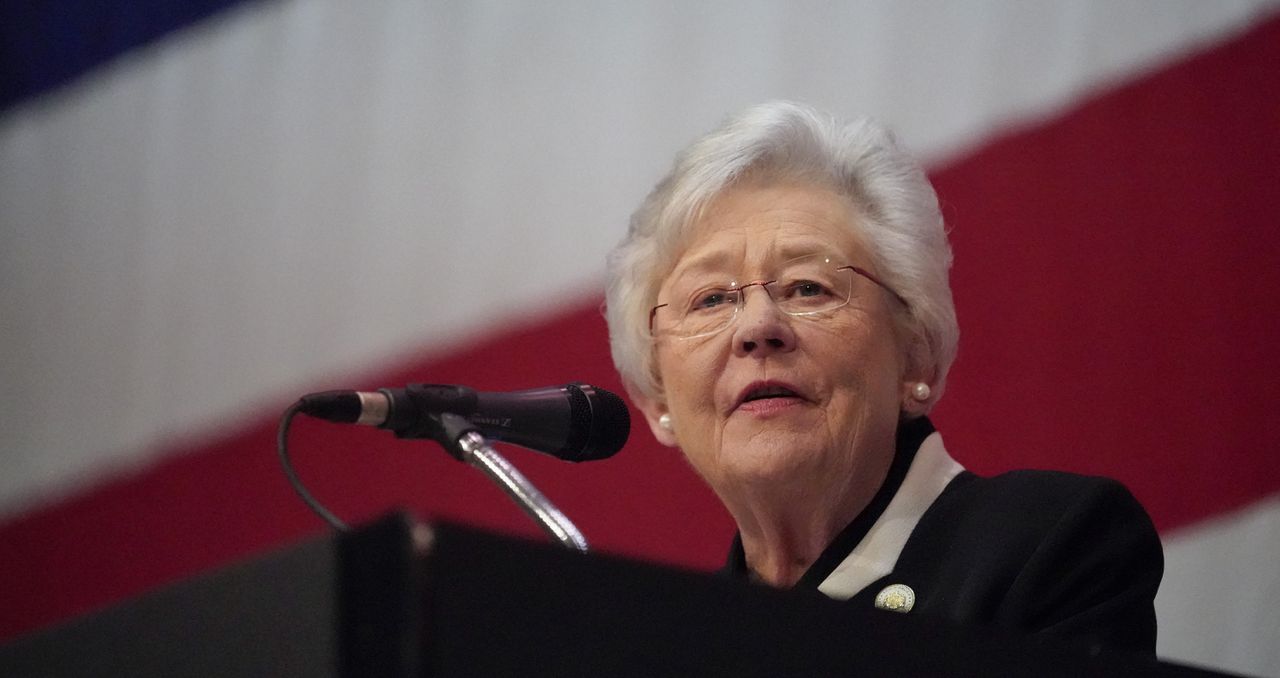Whitmire: Kay Ivey keeps docs secret, leaves kids locked in seclusion
This is an opinion column.
The less schools work like prisons, the better. The lunchroom food is bad enough. Cutting up in class shouldn’t get you thrown in the hole.
But before 2011, many Alabama schools were doing just that — putting disruptive students in “seclusion,” as administrators called it.
Or as they call it in the pokey, solitary confinement.
The Alabama State Board of Education told school systems to knock it off. In 2011, the board passed a statewide policy banning the practice, and that was supposed to be that.
Or perhaps that’s what we in the wider public were supposed to believe.
A few years ago, my colleague at AL.com, Trisha Crain, picked up on something interesting. At least some schools were locking kids up, anyway, and the Alabama Department of Education knew as much.
What’s more, the state superintendent doesn’t seem to have done anything to enforce the board policy by putting a stop to it.
SEND TIPS: Has this happened to you or your child? Help us break this story out.
School systems have to give some data to the U.S. Department of Education, which revealed Alabama schools were putting students into seclusion as recently as 2018. But the data stops there.
The state was supposed to be collecting reports each year from the school systems, too. Crain asked to see that data by submitting a public information request — three years ago.
And this is where the story stuck — for three years.
This isn’t a column about brutal conditions in Alabama schools or about Alabama’s worst-in-the-nation open records law. It’s about both of those things. This is a story about how our broken records law hides law-breaking, how one thing enables the other.
Since she first asked for this data, Crain has repeatedly followed up, only to be fed more excuses for why the state school board couldn’t release the information yet, but often with the promise that it was coming soon.
“You may get them on Monday but if not definitely Tuesday,” the department’s director of communications, Michael Sibley, wrote in July.
In 2022.
Tuesday came and Tuesday went. Then another 50 Tuesdays went by with nothing but more excuses — they were getting the records together, they were digitizing hard copies, they were redacting names … every excuse but a flat tire.
And therein lies the problem with Alabama’s worst-in-the-nation open records law. While that law says clearly that public documents are subject to inspection upon request, it sets no deadlines for public agencies to produce those records.
If public officials don’t want you to see something, they can drag their feet forever.
Earlier this year, state Sen. Arthur Orr, R-Decaur, and state Rep. Cynthia Almond, R-Tuscaloosa, attempted to set deadlines on open records requests by amending the open records act. However, that bill died on the last day of the legislative session after Gov. Kay Ivey’s office told lawmakers she didn’t want to sign it.
RELATED: Kay Ivey’s open records promise was a poisoned apple
An executive order Ivey issued in January would seem to fix the problem. It sets a 45-day deadline for answering records requests. However, it also allows state agencies to reset the clock by requesting more time and it doesn’t limit how many times they can reset that clock. In reality, it’s no deadline at all. It still leaves the public with nowhere to appeal a denial, or a delay, or just being ignored. And perhaps most crucially, there are no teeth in the law, no state agency to enforce the law,
And here is how that plays out.
Let’s be clear about what’s going on here. The Alabama Department of Education is not giving Crain this data because it doesn’t want to.
From what we can see, it’s probable that Alabama schools have been locking students in solitary confinement despite a 12-year-old state board policy forbidding the practice.
And it’s probable that the state board has known for years that this was happening and has done nothing to stop it.
But once Crain gets those records, probable become provable and that would be the sort of thing that might get people fired.
It certainly would be embarrassing for everyone involved, including the president of the state board.
That would be Kay Ivey, who leads the board as part of her duties as governor.
Kay Ivey, the woman who killed the open records reforms that would have stopped this sort of stonewalling.
When Crain asked the governor’s spokeswoman how the governor felt about the very body she leads ignoring her executive order, she refused to answer the question. Instead, she directed Crain back to the same officials who had stonewalled her for three years.
That silence says everything.
Our public officials don’t want public records to be made public because then they might be held accountable. That’s so obvious, everyone can see it.
Even from the hole.
More columns by Kyle Whitmire
Kay Ivey’s open records promise was a poisoned apple
How Alabama Democrats could blow a Supreme Court victory
The moment Alabama’s lawyers turned a sure thing into blistering defeat
Alabama state Rep. John Rogers has been the feds’ target for 35 years. He isn’t afraid.
